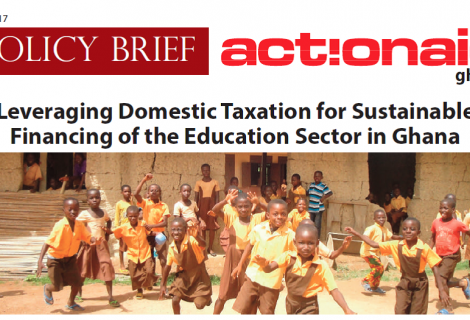
Policy Brief: Leveraging Domestic Taxation for Sustainable Financing of the Education Sector in Ghana
This policy brief examines the dwindling state of education financing in Ghana and its impact on learning outcomes and inequality. Despite the government’s commitment to free and compulsory education, the brief demonstrates that the budget for education is insufficient and sometimes not fully disbursed. It further reveals that the underfunding of education in Ghana has led to public schools charging unauthorized levies while delivering poor quality education.
This has led to an increase in private schools, which are also not well regulated and supervised to ensure the maintenance of minimum quality standards.
The policy brief has been developed from desk and case studies conducted by ActionAid Ghana in 2017. This study also showed that Ghana is losing huge sums of money estimated at $1.2 billion annually (ActionAid, 2012) in harmful tax incentives. Even if only 20% of the colossal amount lost in needless incentives had been allocated to education, it could have paid for additional places in school for the 319,000 children estimated to be out of school or about a 10,000 additional teachers or free school meals for 557,892 children.
The policy brief, therefore, recommends the plugging of tax loopholes to grow Ghana’s stagnating Tax to GDP ratio. This will enable government to increase the resource envelope to education to about 20% of the national budget and help reduce the cost of education on parents while improving quality in education.